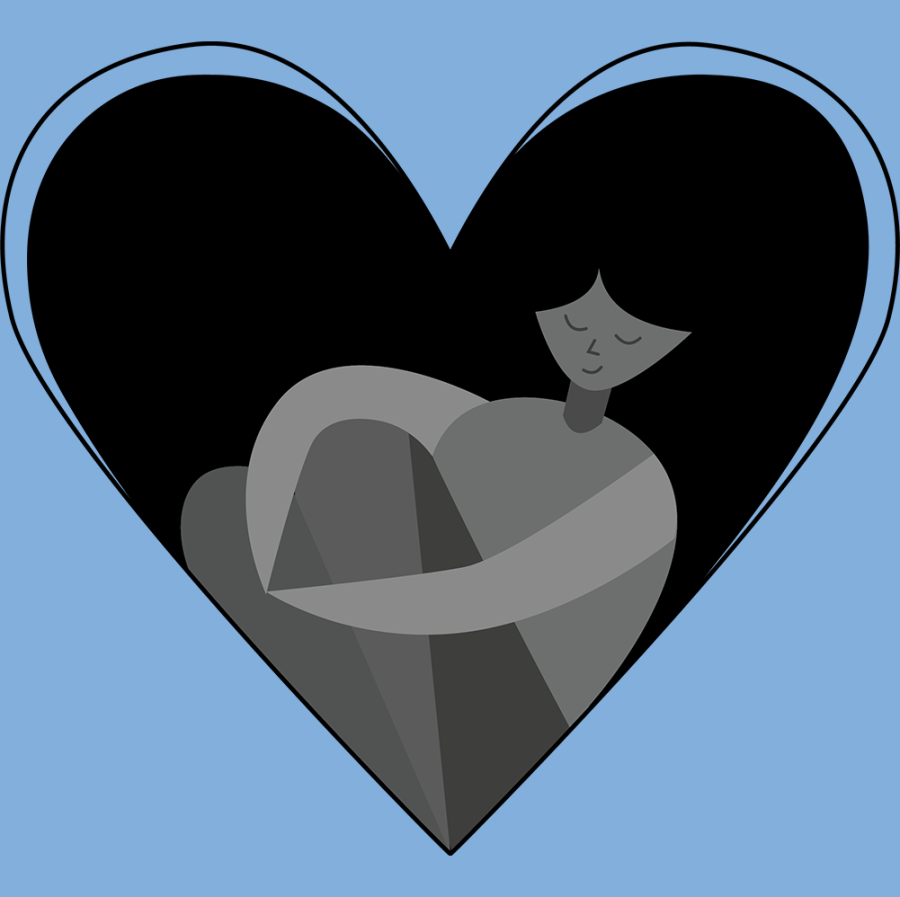It’s difficult to go with the flow: Periods pose problems to menstruators, cramp their styles
When freshman Khloe Hisatomi got up from her chair to sharpen a pencil in sixth grade, she realized she was sitting in a pool of blood. “I was so confused, because I forgot periods existed for a quick minute,” she said. “It was literally everywhere.”
Worried about revealing the blood on the chair, she stayed frozen in the seat after the class ended until her teacher asked her why she hadn’t left. “I told him, ‘I think I just got my period,’” Hisatomi said. “[Then], they called my grandma to come pick me up. It was so traumatizing and awkward.”
Most menstruating students have, at some point, been in a situation similar to Hisatomi’s. When sophomore Nyx White attended a national taekwondo tournament in Las Vegas, for example, they constantly feared bleeding through their white uniform. The nature of the techniques executed only exacerbated the issue. “I was doing a sidekick that went vertical, which was nerve-wracking,” White said.
A sophomore, who asked to remain anonymous, threw up in the bushes beside the football field track while running laps in Physical Education (P.E.) class during her period. Eventually, she went to the nurse’s office to lie down. “I was just cramping a lot, and then I was feeling really dizzy,” she said.
These incidents comprise some of many experiences in a wide spectrum of physical and emotional discomfort for menstruating students. Most agree that they are inconvenienced to some degree by their periods. “I experience a lot of cramps and a lot of pain, and it’s really hard to do normal activities,” Hisatomi said.
According to a survey conducted by The Oracle, with 256 responses from Gunn students, the top five symptoms menstruating students at Gunn experience are cramps, mood swings, fatigue, bloating and food cravings. A freshman who wished to remain anonymous, sophomore Yuna Suh and Hisatomi all said that cramping—a common symptom before and during periods—feels much like being punched in the stomach. “It’s brutal,” the anonymous freshman said. “I feel constantly nauseous.”
The pain can be exacerbated when students participate in sports. “Sometimes when you’re doing different activities, it hurts more than if you’re just sitting on your couch,” the anonymous sophomore said.
Menstruation also comes with emotional baggage. White found that their mental health issues become more pronounced than usual when they are on their period. “I got pretty lucky that I don’t really get any cramps,” they said. “I do struggle with some mental health issues like depression, and I do note that they can get a lot worse when I’m on my period.”
Hisatomi reported feeling more emotionally drained and affected by rudeness than usual, a sentiment Suh echoed. “I get tired, kind of sensitive and annoyed really easily,” she said.
For nonbinary students, periods can also serve as an unwanted reminder of the discrepancy between their sex assigned at birth and their gender identity. The anonymous freshman, who identifies as nonbinary, finds that periods can worsen gender dysphoria. “[Periods are] painful, and they might suck for both [cisgender and nonbinary students], but there is an extra piece that’s different [for nonbinary students],” they said. “It reminds you that your physical body parts don’t align with the way you feel.”
Yet experiences also differ between nonbinary students. White (who also identifies as nonbinary) doesn’t experience gender dysphoria, though they are less comfortable with discussing periods because of their gender identity. “It’s definitely different from being a transgender man, because it doesn’t necessarily give me dysphoria,” they said. “I’d just rather not have it.”
Having to worry about periods at school adds another concern if students are already worried about classes. When students have a fixed quota of bathroom breaks throughout a year or don’t want to miss content in a fast-paced class, they must make decisions about what to prioritize: learning or comfort. “In chemistry, I know we have a certain number of bathroom breaks,” the anonymous sophomore said. “You have to [take care of your period] before that class or after that class, and it’s just not convenient.”
Students’ comfort level with asking to be excused to take care of their period can depend on the gender of their teacher. Many students feel more comfortable relating their requests to female teachers. For White, it’s difficult to talk to any teachers in the first place because of their gender identity. “I don’t think I would be comfortable having [a conversation] because I am nonbinary, and I don’t really talk about that stuff a lot, especially because I try to be more agender or masculine presenting,” they said.
The Palo Alto Unified School District (PAUSD) is taking steps to support menstruating students, such as providing free pads and tampons in bathrooms in accordance with California Education Code 35292.6, passed on Oct. 8, 2022. Still, there remain ways the school can further support menstruating students. The anonymous sophomore observed that only some bathrooms, such as the P-Building upstairs bathroom, are consistently stocked. According to Hisatomi, Gunn can provide menstrual products of various absorption capacities to support students with different bleeding patterns, or even provide a framework for students who have period-related accidents.
Titans for Justice club officers juniors Anika Thapar and Caitlin Ginn, who are working on an Advanced Authentic Research project aligning health education in PAUSD with the California Healthy Youth Act 2016’s framework, noted that there is also room for broader and more consistent conversations about periods to continue destigmatizing them. “It has to be a progressive conversation rather than a one-time thing,” Thapar said. “What PAUSD does is talk about [periods] once and then kind of push [the topic] aside, but it needs to be more consistent.”
Ginn advocates for health education to be taught earlier for all students. “The best way to combat that is [through people] being taught [at a younger age] and making it so that these are conversations that people feel comfortable having,” she said.
White also emphasizes the importance of addressing common misconceptions about periods, highlighting that non-menstruating students are often unfamiliar with the cyclical nature of menstruation. “When you’re not on your period, there’s still a whole cycle of hormones,” they said. “So if you’re not currently bleeding, there are still emotions being affected.”
Similarly, some might mischaracterize periods as controllable occurrences, rather than unregulated, days- or week-long ordeals. “It’s not like pee, and you can’t hold it in,” White said. “A lot of the time [when] you have to go to the bathroom and deal with [your period], you might get told, ‘Wait a minute, can you go after we finish talking?’ and it’s more like, ‘I can’t just hold it in.’”
Students have developed ways they can cope with the effects of periods, ranging from taking painkillers and staying hydrated to using heating pads and wearing period underwear. At the end of the day, though, senior Morgan Mantovani encourages those menstruating to be forgiving to themselves. “Being gentle on yourself [is important],” she said. “Take time for yourself. It’s a completely valid thing. Just do whatever you need to to get through it, because it could be really tough sometimes.”
Your donation will support the student journalists of Henry M. Gunn High School. Your contribution will allow us to purchase equipment and cover our annual website hosting costs.

Senior Amann Mahajan is the editor-in-chief of The Oracle and has been on staff since January 2022. When she’s not reporting, she enjoys solving crosswords,...

Irene Tsen is a senior and managing editor for The Oracle. She enjoys eating dark chocolate, organizing all aspects of her life and adding more books to...


